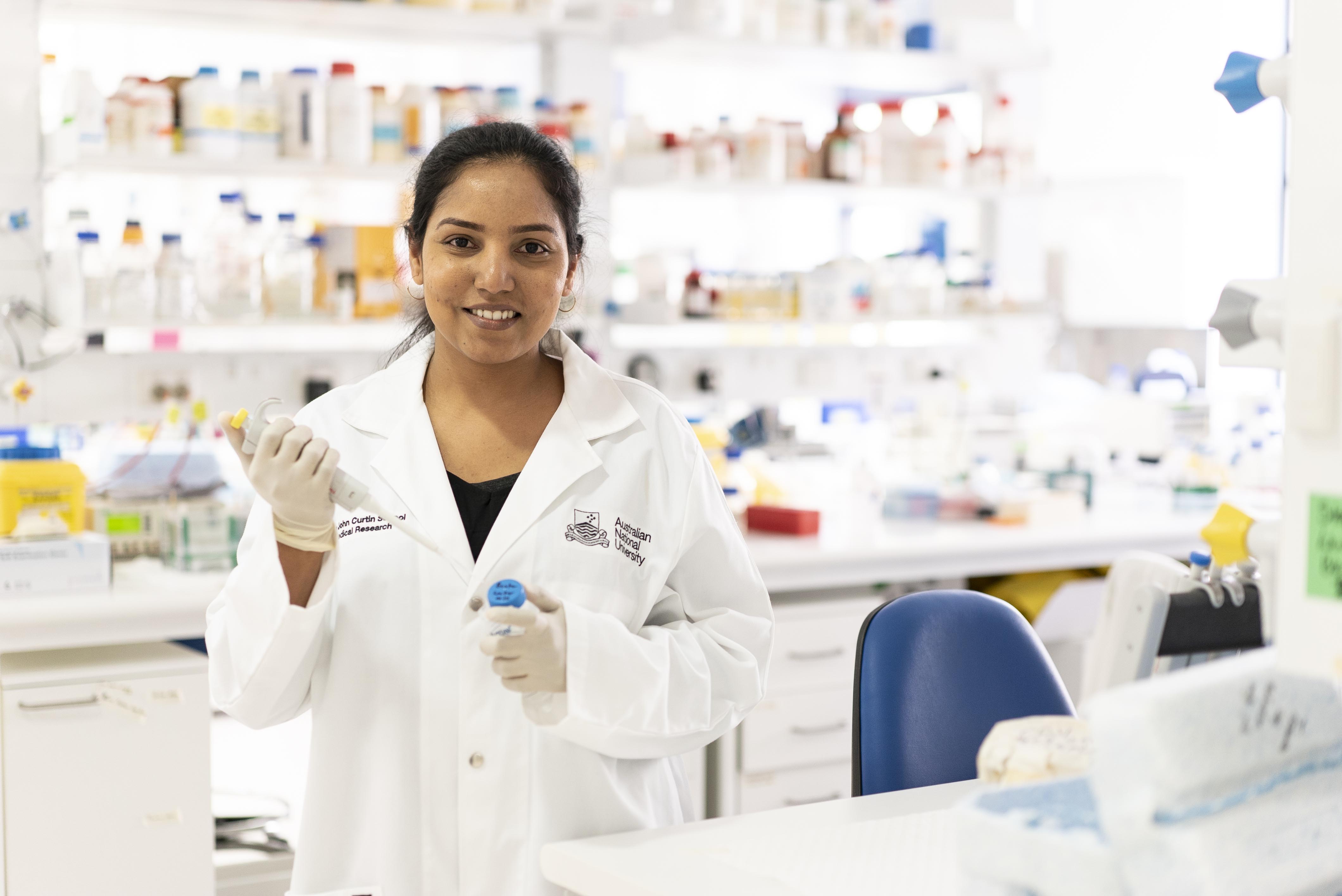From the village to the lab

Thilaga Velusamy, PhD student in the Tscharke Lab, has shared with ANU Science her journey from a small village in India to our labs.
“I’m from a village in Tamil Nadu, in the southern part of India. My parents are farmers with a small amount of land, where they grow crops in rotation: sugar cane, peanuts, rice. My dad also has a poultry farm so I grew up collecting eggs.
To get to school every day, I had to ride a bike for five kilometres with my brother on the back. I was very happy when my brother got his own bicycle after a few years!
In the village, if there was a power cut, it would be for a few days because no-one would come to fix it, and in monsoon season cuts were very frequent. It was very disruptive to my study, so after Year 10 I had to leave the village and went to boarding school. My parents always wanted me to get a good education.
I was very studious in high school. I liked biology, maths and chemistry, and went on to study plant molecular biology and biotechnology at university, which seemed natural to me because of my background in farming.
As an undergrad, I would look admiringly at the postgrad researchers wearing lab coats and the excitement you would see in their faces when they achieved even a small success, like troubleshooting an experiment. I really liked that environment and the idea of taking one particular question and trying to answer it. From that time on, being a researcher was my dream.
My lecturers were all trained overseas and told these stories of going to other countries and meeting people from different cultures, and using state-of-the-art facilities. I started imagining those things for me, and began my path by taking up internships in multinational biotechnology companies in India.
I still can remember the first day I stepped foot in Canberra. It was spring, and it had just rained that morning. The roads were wet, the air was clean and fresh, and everything was green. It was wonderful.
I started at the ANU Research School of Biology doing an internship in plant sciences. I immediately liked it. I remember arriving at the facilities and thinking, ‘Wow, this is my dream and here I am!’ I was doing the kind of lab work which I had only read about in textbooks.
Now I’m in the final year of my PhD at the John Curtin School of Medical Research at ANU. I’m in David Tscharke’s lab group working on the herpes simplex virus. I’m researching the mechanism that the virus uses to hide from the immune system, by making a protein called ICP47. My project specifically looks at how this process is different in mouse models compared to humans, and what that can tell us about treating the virus in humans.
We did not know how this research would turn out, but when we started the mass spectrometry work, we discovered just how well it was going - very well! As the findings were coming in, I felt like I was floating off the ground.
Doing a PhD is a big rollercoaster emotionally, and especially balancing it with family life, it’s not easy. But I appreciate it every day.
My parents are very proud. Very proud. I miss them so much, but when I think about that village girl—I’m sorry, I’m getting very emotional thinking about these things—when I think about that village girl I was, who didn’t know anything of the world except the bubble around me, and now I see myself here at this university… well, it’s a good progress report.”
